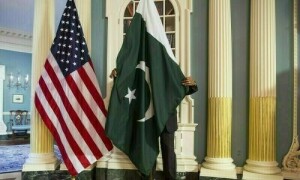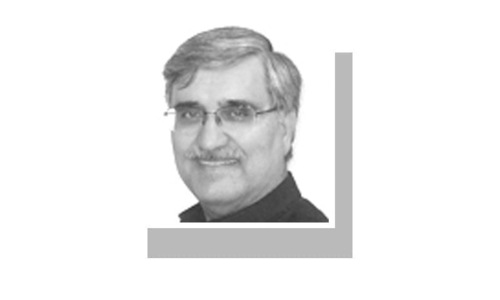THE new deal reached between Pakistan and the US marks a breakthrough in their oft-strained relations. Both sides claimed on Thursday that they have reached a deal. American President Donald Trump said it will help the two allies tap Pakistan’s “massive oil reserves”.
“We are in the process of choosing the Oil Company that will lead this Partnership,” he announced on social media. While the US president did not mention tariffs, Islamabad said the agreement would lead to a reduction in the steep reciprocal import taxes Washington had slapped on its exports under the so-called Liberation Day duties announced in April but temporarily suspended for 90 days to give room for trade talks. Pakistan faces a potential tariff of 29pc.
The country’s finance ministry said this deal signals “the beginning of a new era of economic collaboration especially in energy, mines and minerals, IT, cryptocurrency and other sectors”. Finance Minister Muhammad Aurangzeb described it as a win-win situation for both nations. While neither side gave too many details, Pakistani authorities expect the pact to boost bilateral trade, expand market access, attract investment and foster strategic cooperation.
The minister said: “From our perspective, it was always going beyond the immediate trade imperative. The whole point of this is that trade and investment have to go hand in hand.” The announcement came a day after Mr Trump slapped 25pc tariffs on imports from India to punish it for its Russian oil purchases. Therefore, the ‘symbolism’ of the pact is likely to matter more than the sketchy specifics of the agreement — especially the tariff reductions which Islamabad claims to have secured.
That said, the deal reflects a willingness on the part of the leadership of the two countries to recalibrate their transactional security-focused relationship in favour of a greater focus on strategic trade and investment ties. This surprise turn in bilateral relations should send a positive signal to foreign investors, especially American firms, which have so far been reluctant to bring their capital to Pakistan due to the chill in relations for the last several years.
Whether or not Mr Trump plans to convert his energy cooperation rhetoric into action will only be known after a final tariff deal is announced. Islamabad is seeking a substantial reduction in reciprocal tariffs from 29pc to 15-20pc, on a par with other recent US trade agreements, particularly with Japan, Indonesia, the Philippines and Vietnam. But Foreign Minister Ishaq Dar believes that Pakistan should be fine “as long as we are better than or equal to our peers”. A favourable tariff deal is critical for us as the US is our single largest export market. The deal will also determine the future direction of economic and investment cooperation between both states.
Published in Dawn, August 1st, 2025











































